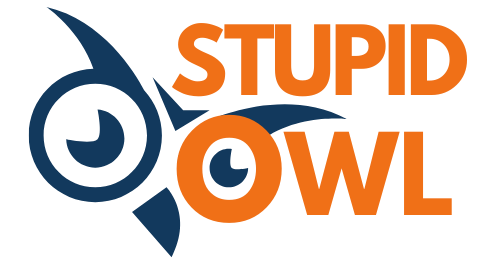Relevant Information: The Key to Effective Communication
When it comes to communication, being smart or stupid doesn’t matter as much as having the right information. In today’s fast-paced world, where information is readily available at our fingertips, it is crucial to filter through the noise and focus on what is truly relevant.
The Importance of Relevant Information
Relevant information is essential for effective communication because it provides clarity, saves time, and ensures that the message is understood correctly. When we have access to the right information, we can make informed decisions, solve problems efficiently, and avoid misunderstandings.
For example, imagine you are planning a trip to a foreign country. You need to know the local customs, the best places to visit, and the necessary travel documents. Without this relevant information, your trip could be filled with unnecessary challenges and frustrations.
Similarly, in a professional setting, having access to relevant information is crucial for making informed decisions. Whether it’s conducting market research, analyzing data, or staying updated on industry trends, having the right information at the right time can give you a competitive edge.
How to Identify Relevant Information
With the abundance of information available today, it can be challenging to determine what is relevant and what is not. Here are some tips to help you identify relevant information:
- Define your objective: Clearly define what you are trying to achieve or understand. This will help you narrow down your search and focus on finding information that is directly related to your goal.
- Consider the source: Evaluate the credibility and expertise of the source. Look for reputable sources such as academic journals, industry publications, and trusted experts.
- Look for recent information: In rapidly changing fields, it is important to prioritize recent information. Look for sources that are up-to-date and reflect the latest developments.
- Filter through the noise: Use search filters, keywords, and advanced search techniques to refine your search results. This will help you weed out irrelevant information and find what you need more efficiently.
- Seek multiple perspectives: Consider different viewpoints and sources of information to get a well-rounded understanding of the topic. This will help you avoid bias and gain a more comprehensive view.
Communicating Relevant Information
Once you have identified the relevant information, it is important to communicate it effectively. Here are some tips for communicating relevant information:
- Be clear and concise: Present the information in a clear and concise manner. Use simple language and avoid jargon or technical terms that may confuse the audience.
- Organize the information: Structure the information in a logical manner, using headings, subheadings, and bullet points. This will make it easier for the audience to navigate and understand the content.
- Provide context: Help the audience understand the relevance of the information by providing context. Explain why the information is important and how it relates to their needs or goals.
- Use visual aids: Visual aids such as charts, graphs, and infographics can help convey complex information more effectively. They can also make the content more engaging and memorable.
- Encourage feedback and questions: Create an open and interactive environment where the audience feels comfortable asking questions and providing feedback. This will ensure that the information is understood and can lead to further discussions and insights.
In conclusion, when it comes to effective communication, being smart or stupid is not as important as having the right information. By focusing on relevant information, we can ensure clarity, save time, and achieve our communication goals more effectively.




